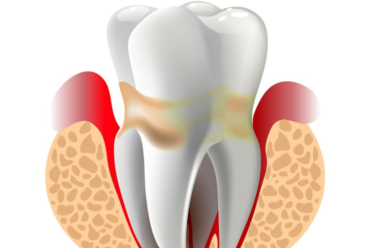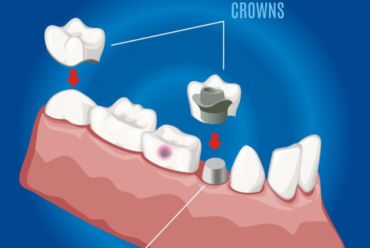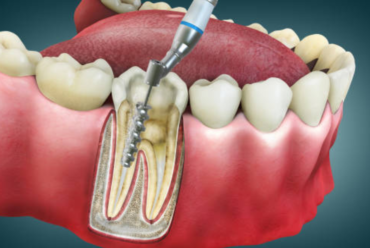How RCT Specialists Ensure Pain-Free and Effective Root Canal Treatments
Root canal treatment (RCT) has long been associated with fear and discomfort, but advances in dental technology, techniques, and patient care have made the procedure more comfortable and effective than ever before. Root canals are often necessary when the pulp of a tooth becomes infected or damaged due to trauma, deep decay, or disease. While many people worry about the pain involved, RCT specialists have the training, expertise, and modern equipment to ensure that the treatment is as pain-free and efficient as possible.
Understanding Root Canal Treatment
Root canal treatment involves removing the infected or damaged pulp from within a tooth, cleaning and disinfecting the root canals, and then sealing them to prevent further infection. The goal is to save the tooth and prevent the need for extraction. RCT specialists, also known as endodontists, have advanced training beyond that of a general dentist, enabling them to perform these procedures with precision and expertise. They specialize in diagnosing and treating diseases and injuries of the dental pulp, and they are experts in root canal procedures.
The Role of RCT Specialists in Ensuring Pain-Free Treatments
- Comprehensive Assessment and Diagnosis
Before any root canal procedure begins, RCT specialists perform a thorough examination of the patient’s dental and medical history. This includes reviewing any prior dental treatments, current symptoms, and potential underlying conditions. Advanced diagnostic tools, such as X-rays, are often used to get a clear view of the tooth and its surrounding structures. The specialist will use this information to develop a personalized treatment plan. By identifying the root cause of the issue and understanding the condition of the tooth, the specialist can take a more targeted approach to the treatment, reducing the need for unnecessary procedures and minimizing discomfort.
- Effective Anesthesia for Pain Control
A common concern about root canals is the fear of pain during the procedure. However, modern RCT specialists employ highly effective local anesthesia to ensure that the area being treated is completely numb. The administration of anesthesia is a key step in making the treatment comfortable for patients. In addition to local anesthesia, some patients may benefit from sedation options, such as nitrous oxide (laughing gas) or oral sedatives, to help them relax during the procedure. These options ensure that patients feel calm and at ease, even if they have dental anxiety.
- Minimally Invasive Techniques
Advancements in dental technology have led to the development of less invasive and more efficient techniques for performing root canal treatments. RCT specialists use specialized tools, such as rotary endodontic instruments, to remove the infected pulp more quickly and with greater precision. These instruments are smaller and more flexible than traditional hand files, allowing for a more controlled and gentle process. Additionally, the use of advanced magnification techniques, such as microscopes, enables specialists to see the intricate details inside the tooth, further reducing the risk of discomfort or complications.
- Advanced Technology for Accurate Treatment
One of the key factors in ensuring a pain-free and effective root canal is the use of cutting-edge technology. RCT specialists use advanced equipment like digital X-rays, 3D imaging, and electronic apex locators to map out the structure of the tooth and the root canals. These tools help the specialist identify any complexities, such as multiple canals or curved roots, which could make the procedure more challenging. By having a clear and detailed view of the tooth’s internal anatomy, the specialist can avoid unnecessary pressure or damage to the surrounding tissues, ultimately reducing discomfort.
- Pain Management During and After the Procedure
During the root canal procedure, specialists take great care to minimize any potential sources of pain. After removing the infected tissue and cleaning the root canals, the dentist fills and seals the canals to prevent further infection. The dentist may place a temporary filling to protect the tooth while it heals, and in most cases, the patient will be given instructions for aftercare. This may include recommendations for over-the-counter pain relievers, such as ibuprofen or acetaminophen, to manage any mild discomfort or swelling in the days following the procedure.
Most patients report feeling little to no pain during the procedure, thanks to the combination of effective anesthesia and modern techniques. Any discomfort that arises afterward is typically mild and short-lived. Most patients find that their discomfort is minimal, and any post-treatment symptoms usually subside within a few days.
- Personalized Aftercare and Follow-Up
After a root canal procedure, the RCT specialist will provide the patient with detailed aftercare instructions to ensure the healing process is smooth and to minimize any risk of complications. This includes tips on proper oral hygiene, dietary restrictions, and medications. Regular follow-up visits may be scheduled to ensure the tooth is healing properly and to check for any signs of infection.
By providing individualized care both during and after the procedure, RCT specialists ensure that patients experience minimal discomfort and are on track for a speedy recovery.
The Benefits of Seeking Treatment from an RCT Specialist
While general dentists are capable of performing root canals, seeking treatment from an RCT specialist has several advantages, especially when it comes to ensuring pain-free and effective treatment. Here’s why you might consider seeing an endodontist for your root canal:
- Expertise and Specialization: Endodontists undergo extensive additional training in root canal procedures, giving them a higher level of expertise and experience than general dentists.
- Advanced Equipment: RCT specialists have access to the latest technology and equipment, which allows them to perform treatments more accurately, quickly, and with minimal discomfort.
- Faster Recovery: With their specialized techniques, endodontists can often complete root canal treatments in fewer visits, allowing for a faster and less stressful recovery period.
- Better Outcomes: With their in-depth knowledge of the tooth’s internal structures, RCT specialists can often achieve better outcomes, including a higher success rate for saving the tooth.
Conclusion
Root canal treatment doesn’t have to be a painful or stressful experience. RCT specialists combine advanced technology, effective pain management techniques, and expert skills to ensure that your root canal is as comfortable and successful as possible. By choosing an endodontist for your treatment, you can be confident that you’re receiving the highest level of care available, allowing you to preserve your natural tooth and avoid unnecessary complications.







